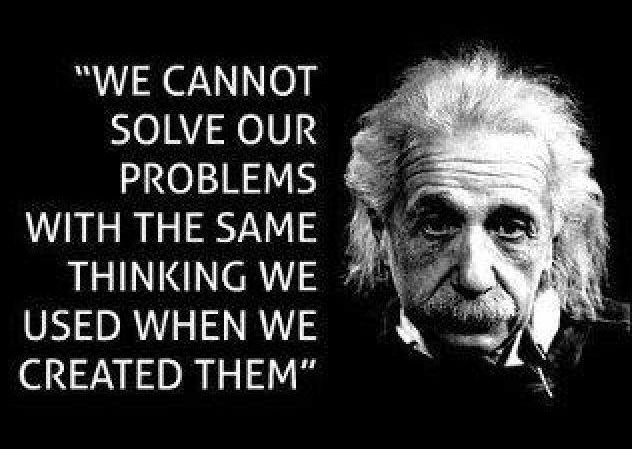King of Bad Takes: Solving World Hunger

Identifying problems is not a skill.
Today I saw yet other ridiculous headline about how we can "solve world hunger" using however many billions of dollars. Today that number was $330B, with a frame of reference added in that this would only be like 7% of what the defense industry spends, aka the military industrial complex.
Of course this is absurd sentiment for many reasons. First of all when Elon Musk bought Twitter people were spewing the same nonsense. "You could have solved world hunger for a lower price." I believe the figure being tossed around was something like $10B, not that it matters.
Regardless of what the number quoted may be, it is blatantly incorrect and lacks any and all common sense. "Solving" world hunger is not a linear problem. We can't just add up all the hungry people in the world and calculate how much it would take to feed them, let alone translate that amount of food to an actual dollar cost. After all, these costs would change after the solution was implemented.
Basic economics
Shockingly, people can't eat money, so right off the bat presenting a solution using dollars as a measurement is at least a little bit flawed. I'm not saying there's a better way to do it but it is what it is. Pretending like we can print money out of thin air or divert it from the war machine without affecting any other part of the economy is a childish notion. War is a for-profit business, and altruism is not. Pretending like the domino effect isn't a real thing when making an argument is just a painfully novice way to go about it.

What would happen if we made rice free?
That makes sense, right? Rice is a very cheap staple. If anyone could get access to free rice that would potentially go along way to combat world hunger. Sounds good to me!
The problem with making rice free is that making rice free reduces the market value of rice to zero. Now the only way that rice farmers can turn a profit is if they get permission from the government. This in turn centralizes the entire worldwide production of rice. Whoever is subsidizing the rice and giving it away for free gets to pick and choose which farmers get the subsidy and which don't.
This in turn can create other problems like the transition of normal rice production to a GMO product. Many would say this is not a big deal because they are only modifying the genetic structure of the rice to get higher yields and whatnot. However, at this point in time with AI and gain-of-function research who knows what kinds of malicious intent or accidental outcomes could occur. Either way, this is not even close to the biggest sticking point when running this thought experiment.
Sybil attack?
How does one prevent an individual from taking more than their fair share of rice? This is where we begin to enter the realm of KYC and full on communism. The only way to go about this issue is to identify and track everyone all the time, which again in practice is a terrible terrible plan. Not only that, this 'solution' only works for the majority of the population, and everyone that has control over the system itself can easily hack and exploit it even if most people can't.
Population control?
Are we going to prevent citizens that acquire free rice from having babies? How else would we stop the population from booming out of control as the direct result of free food? How can we possibly say we can cure world hunger with $x amount of dollars if the solution actually makes the problem worse? Make it make sense.
An abundance of food in any environment always results in explosive exponential growth. What happens if the population of Earth suddenly doubled to 16 billion over the next decade because we "solved world hunger". What kind of other heinous problems would an expansion like that create?

Fighting fire with fire is a bad plan
If the problem is a shortage of food, the long-term solution almost certainly isn't just giving away food for nothing. We cannot solve these issues just by throwing money at them and calling it good. That is not how it works. Solutions that can't sustain themselves are not solutions at all.
Sustainability
Solving any kind of problem like this is going to involve sustainability and balance. Giving away resources is like putting a bandaid on a cut. It will help if the problem will go away on its own. The body heals itself. However, if the cut gets infected and festers the bandaid is completely worthless or can even make the issue worse.
Jobs
If we want to stop world hunger, isn't the solution obvious? We need to be giving people who need money good jobs. The workers create a lot of value to society and we pay them a lot of money. That's the optimal solution, not a horrifically centralized welfare state. Of course saying a thing and doing it are two completely different things; just like identifying a problem and solving a problem are wholly separated by complexity.
Technological deflation.
There certainly could be a scenario in the future where energy is near-free and robots do most of the work (including creating more robots). In a situation like that many products would be extremely cheap and most assets would be affordable (assuming you could get a job within such an environment).
However, this would equate to normal supply and demand rather than being a government subsidy. Free market solutions tend to sort themselves out if the product in question has many producers and consumers (aka real competition). More complicated problems arise when the product is extremely difficult to produce (like computer chips). Just ask Taiwan.

Conclusion: There is no shortage of resources.
The entire argument is a farce at the get-go. Everyone knows there's already more than enough food to feed everyone on the planet, just like their are more than enough homes to accommodate the homeless. The real issues are the ones rooted in logistics, sustainability, profitability, and distribution.
Giving away wealth isn't an optimal way to distribute resources, but rather a symptom of the disease itself. Such a tactic ironically increases centralization and solidifies complete dependency on the state. "Do what we tell you or you'll get no UBI payment this month." It's a toxic way to do business that will almost certainly pop its head up in the future as the value of people within the economy continues to be automated out of existence.
A very interesting read. You raise some good points of which I have zero argument with. :) I had never considered the audacity of thinking more money could fix world hunger before. Now I understand why the logic is flawed.
Some valuable thoughts, but how would giving someone a job be different from giving them money or rice? They would still have to comply with pedantic and invasive criteria, would still be dependent on the state, would still be getting a handout/up, and centralization would still be increased.
I think jobs are generally more decentralized in nature... many companies employ but only a centralized entity would provide UBI, etc.
Isn't there a weird thing in America where the Federal Government is buying up cheese and diary products to support the farmers? I guess it'd be a similar thing with rice. You wouldn't make it free exactly, a government would buy it off the farmers and ship it to where its needed, so the price of rice wouldn't go to zero, instead it would be a reliable crop with reliable demand.
I'm definitely in two minds about all this... on one hand, we have enough technology to help struggling areas with cheap, renewable power that could leapfrog the infrastructure debt of developed countries that would help them directly grow food in struggling areas... and on the other hand, should people be living in areas that can't sustain that population? Is it efficient to effectively fight against nature, especially considering we're only more likely to see more and more extreme weather events destroying our already underfunded infrastructure?
Yeah there are a ton of farming subsidies in USA with all kinds of debate over it extending back to the great depression.
Investing in developing countries' infrastructure could otherwise be smart, but corruption usually takes away all the benefits. We can allocate funds for wells but what's the point if those funds vanish into the pockets of the few?
I know it's a used phrase but to think of it, education really is the key. That'll lead to demanding rights and eventually(hopefully) to revolution. I feel that each country needs to go through this phase by themselves to find a better life.
When you take off the incentivization to work by giving free stuff you are condemned to fail a entire population. People will lower their productivity and that will lead to less products, shortages and misery. That is communism, you can see results in countries like Cuba, Venezuela and North Korea.
The best solution is give jobs opportunities to all with fair salaries and rise the status of live in every pour country to a close level to the developmen countries. Of course, you have to erradicate corruption for that first.
I used to tell my friends who think socialism or communalism is very cool. I said the world has tried it but it has failed woefully. Capitalism is the key. Taking Africa for example, a lot of people think giving money through aids would solve the problem of poverty and hunger but it doesn't.
Don't give the people fish teach them how to fish. If more people are getting engaged in farming that is another way of reducing world's hunger because more yield means lower price.
Remarkably astute.
Thanks!
I think main problem for the world, at least if current demographic trends continue, won't be scarcity of resources or scarcity of food. Instead it will be scarcity of people who are supposed to produce, process, distribute or even consume such food.
Man alone on their own can never solve the issue of world hunger because they have already diverted their assets and attention more to creating world hunger as they fund nuclear weapons and tussle for power. It is only God that can solve the problem of world hunger. Man has already failed causing more harm to man.
Congratulations @edicted! You have completed the following achievement on the Hive blockchain And have been rewarded with New badge(s)
Your next payout target is 148000 HP.
The unit is Hive Power equivalent because post and comment rewards can be split into HP and HBD
You can view your badges on your board and compare yourself to others in the Ranking
If you no longer want to receive notifications, reply to this comment with the word
STOPCheck out our last posts:
I must say that I really like that Einstein quote: "We can't solve problems by using the same kind of thinking we used when we created them"
I keep a book of my favourite quotes and this one has just been added.
Excellent points too on the futility of throwing money at problems. I have seen it here in Ireland now over many years with our health system. More and more money thrown at a problem by politicians, but the same civil servants remain in place who don't really want change and the problems continue to fester like hundreds of people stuck in emergency departments in our hospitals without a bed they so badly need. No matter how many beds are added, the problem abounds, as they don't get to the core of the issues and continue to throw more and more money at it.
Well said, I know of an Irish charity who does not blindly give money to third world countries, but rather spends time there setting up schools and teaching the people how to set up farms or enterprises, so that they can eventually stand on their own two feet.